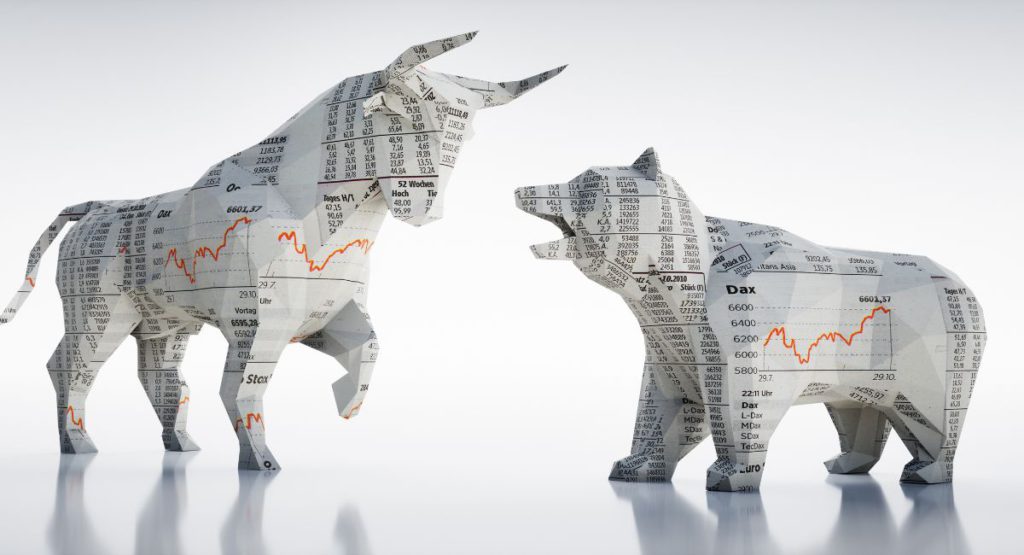Should You Be Investing In The Metaverse After The NFT Fail: Answering The 1 Shocking Big Question

The Metaverse, a virtual reality space where people interact, socialize, and create experiences, has garnered significant attention and investment in recent years. However, with the recent fluctuations and concerns surrounding the NFT market, some potential investors are left wondering whether the Metaverse is still a viable investment. In this article, we’ll explore the merits of investing in the Metaverse, despite the NFT market’s ups and downs, especially after the recent NFT fail.
Understanding the NFT Market
NFTs, or Non-Fungible Tokens, are unique digital assets representing ownership of a particular item, artwork, or collectible. While the NFT market experienced explosive growth in 2021, it subsequently faced some challenges and volatility. Prices for some NFTs have fallen, leading to concerns about the sustainability of this digital collectibles market.

However, it’s essential to recognize that NFTs and the Metaverse are not one and the same. NFTs are but one component of the broader Metaverse ecosystem. The Metaverse encompasses a wide array of experiences and industries beyond NFTs, making it a multifaceted and dynamic investment landscape.
Right legends, I said the other day that I'd be dropping a new metaverse play that I think could be the next 'Sandbox' and something I've been stealth-mode investing in.
The game is Mars4, sub $1m mcap, full in-game economy, great graphics and team behind it. Token & land play. pic.twitter.com/bjgyEunh14
— MDX (@MDXcrypto) October 13, 2023
Relation between investing in the Metaverse and NFTs
The relationship between investing in the Metaverse and Non-Fungible Tokens (NFTs) is closely intertwined, but it’s essential to understand that they are distinct elements within the broader digital and blockchain space. Here, we’ll delve into the connection between Metaverse investments and NFTs and how they complement each other.

1. NFTs as Building Blocks of the Metaverse:
- NFTs are unique digital assets that represent ownership of a specific item or piece of content. These items can be virtual real estate, digital collectibles, in-game assets, or pieces of digital art.
- In the context of the Metaverse, NFTs serve as building blocks that give digital assets scarcity and uniqueness. They enable users to own and trade virtual assets within the Metaverse, which contributes to the creation of a digital economy.
2. Digital Ownership and Interoperability:
- NFTs provide the concept of true ownership in the digital realm. When someone holds an NFT, they have verifiable proof of ownership of a digital asset.
- NFTs are often interoperable, meaning they can be used across multiple Metaverse platforms. This interoperability is crucial for enabling users to take their digital assets from one virtual world to another.
3. Content Creation and Monetization:
- Content creators, artists, game developers, and virtual real estate owners can use NFTs to monetize their creations within the Metaverse.
- By minting NFTs for their digital content, creators can sell them to collectors or enthusiasts, enabling them to generate income.
4. Virtual Real Estate and Development:
- In many Metaverse projects, NFTs are used to represent parcels of virtual real estate. Owners of these NFTs have control and governance over the associated virtual land.
- Virtual landowners can develop their properties, build structures, and host events, further enriching the Metaverse experience.
5. In-Game Assets and Collectibles:
- NFTs can represent in-game assets, characters, or collectibles in virtual worlds. This ownership extends beyond the confines of a single game or platform.
- Gamers and collectors can buy, sell, and trade these NFTs, fostering a secondary market for virtual assets.
6. Value and Speculation:
- NFTs have attracted considerable attention due to their potential for high-value transactions. Some NFTs, particularly rare digital art pieces, have sold for millions of dollars.
- The speculative nature of NFTs has driven investor interest, both in individual NFTs and the broader Metaverse space.
7. Challenges and Volatility:
- While NFTs have seen substantial growth and high valuations, they have also experienced periods of volatility. The market for NFTs can be influenced by speculation and trends, which can lead to price fluctuations.
- This volatility can impact both NFT investments and the broader Metaverse market.
8. Complementary Investments:
- NFTs and Metaverse investments are often seen as complementary. Investors may use NFTs to gain exposure to specific virtual assets within the Metaverse, while also investing in the Metaverse as a whole.
9. Long-Term Vision:
- Both NFTs and the Metaverse are part of a long-term vision for the future of digital interaction and ownership. The Metaverse aims to create immersive and interconnected virtual worlds, and NFTs play a vital role in this vision by enabling digital asset ownership and value transfer.
In summary, NFTs and the dilemma about investing in the Metaverse are closely related, with NFTs serving as unique and scarce digital assets that enhance the Metaverse experience. While NFTs have been at the center of attention due to high-profile sales and digital art markets, they are just one element of the broader Metaverse ecosystem. Investors often consider NFTs as part of their strategy within the Metaverse, recognizing the potential for ownership, value creation, and immersive experiences in this dynamic digital space. However, it’s crucial for investors to conduct thorough research and due diligence to navigate the complexities of both NFTs and the Metaverse.
Also, read – Investing in the Metaverse: Risks and Rewards
Investing in the Metaverse

Here are some compelling reasons why investing in the Metaverse remains a viable and exciting opportunity:
- Diverse Ecosystem: The Metaverse is not solely reliant on NFTs. It encompasses virtual real estate, virtual reality experiences, social platforms, gaming, and much more. Diversification within the Metaverse space reduces dependency on the NFT market’s performance.
- Real-World Integration: The Metaverse is increasingly integrating with the physical world. Companies are exploring opportunities to connect the digital and physical realms, such as creating virtual real estate markets and digital showrooms for real-world products.
- Technological Advancements: Advancements in virtual reality, augmented reality, and blockchain technology are enhancing the Metaverse’s capabilities. These technologies provide exciting possibilities for immersive and interactive experiences, which could drive further adoption.
- Large User Base: Virtual worlds like Roblox, Fortnite, and Decentraland have already established vast user bases. The Metaverse’s growth is fueled by its appeal to users of all ages and interests, making it a valuable space for businesses and creators.
- Economic Opportunities: The Metaverse offers numerous economic opportunities. Individuals can create and monetize content, businesses can establish virtual storefronts, and investors can acquire virtual properties.
Yess, by investing in the right assets it sure will set you up for really good gains. Buying up assets that are filled with potential like #BIGTIME is part of what is required to enhance growth in the crypto space. It recently got listed on Bitget and I believe it’ll do well.
— Metaverse Attorney (@M3taAttorney) October 11, 2023
Considerations for Potential Investors

While investing in the Metaverse holds promise, there are several factors to consider before investing:
-
- Risk Tolerance:
- Metaverse Investments: Understand that investments in the Metaverse can be speculative and volatile. Be honest with yourself about your risk tolerance. Determine what percentage of your investment portfolio you are willing to allocate to this sector.
- Diversification:
- Portfolio Diversification: Diversify your investments not only within the Metaverse but also across different asset classes (stocks, bonds, real estate, etc.). Spreading your investments reduces the risk associated with any single asset’s performance.
- Research and Due Diligence:
- Project Evaluation: Research and analyze Metaverse projects, companies, or cryptocurrencies you’re considering. Look into their technology, team, track record, partnerships, and business models.
- Whitepapers and Roadmaps: Read whitepapers and roadmaps to understand the project’s goals, development plans, and the problem they aim to solve.
- Technology and Infrastructure:
- Understand the Technology: A solid grasp of blockchain technology, virtual reality, augmented reality, and decentralized systems is crucial. Knowing how these technologies work can help you evaluate the potential of Metaverse projects.
- Market Analysis:
- Market Trends: Stay informed about the latest trends in the Metaverse industry. Monitor user adoption, the emergence of new projects, and shifts in technology and consumer behavior.
- Competitive Landscape: Understand the competitive landscape. Identify key players, their strengths and weaknesses, and their market share.
- Regulatory and Legal Considerations:
- Regulatory Environment: Keep an eye on the evolving regulatory environment. The Metaverse’s interaction with real-world assets and regulations can be complex. Legal changes can have a significant impact on the sector.
- Team and Leadership:
- Team Expertise: Assess the team behind the project. Are they experienced in the field? Do they have a successful track record in the industry?
- Leadership: Strong and visionary leadership is crucial for the success of a Metaverse project. Evaluate the leadership’s ability to execute their vision.
- Use Cases and Adoption:
- Utility and Adoption: Consider whether the project or technology has real-world utility. Investigate whether it’s gaining traction and user adoption.
- Partnerships: Partnerships with established companies or platforms can indicate the project’s credibility and potential for growth.
- Scalability and Interoperability:
- Scalability: Evaluate a project’s ability to scale as user adoption grows. Scalability is essential for the long-term success of Metaverse platforms.
- Interoperability: Consider whether the project can work seamlessly with other technologies and platforms. Interoperability is key to expanding the Metaverse ecosystem.
- Long-Term Perspective:
- Patience: The Metaverse is still in its early stages, and widespread adoption will likely take time. Be prepared for a long-term investment horizon and don’t expect quick returns.
- Risk Management:
- Invest What You Can Afford to Lose: Only invest funds you can afford to lose. Metaverse investments can be speculative, and it’s crucial not to jeopardize your financial stability.
- Stay Informed:
- Continual Learning: Stay informed about the latest developments in the Metaverse and blockchain space. Join online communities, attend conferences, and follow industry news to keep your knowledge up-to-date.
- Exit Strategy:
- Plan Your Exit: Have a clear exit strategy in mind. Determine under what conditions you’ll sell your investments, whether it’s based on profit targets, market conditions, or specific events.
- Professional Advice:
- Consult with Experts: If you’re unsure about your investments, consider seeking advice from financial advisors or cryptocurrency experts who can provide personalized guidance.
- Risk Tolerance:
In conclusion, the Metaverse remains a promising investment opportunity, even in the wake of NFT market fluctuations. While NFTs played a significant role in the Metaverse’s rise, the broader ecosystem offers various avenues for investment and participation. As technology continues to advance, the Metaverse is poised to transform the way we socialize, work, and interact, making it a compelling space for forward-thinking investors. However, it’s crucial to approach this evolving landscape with a diversified portfolio and a long-term perspective to maximize your potential returns.




























































